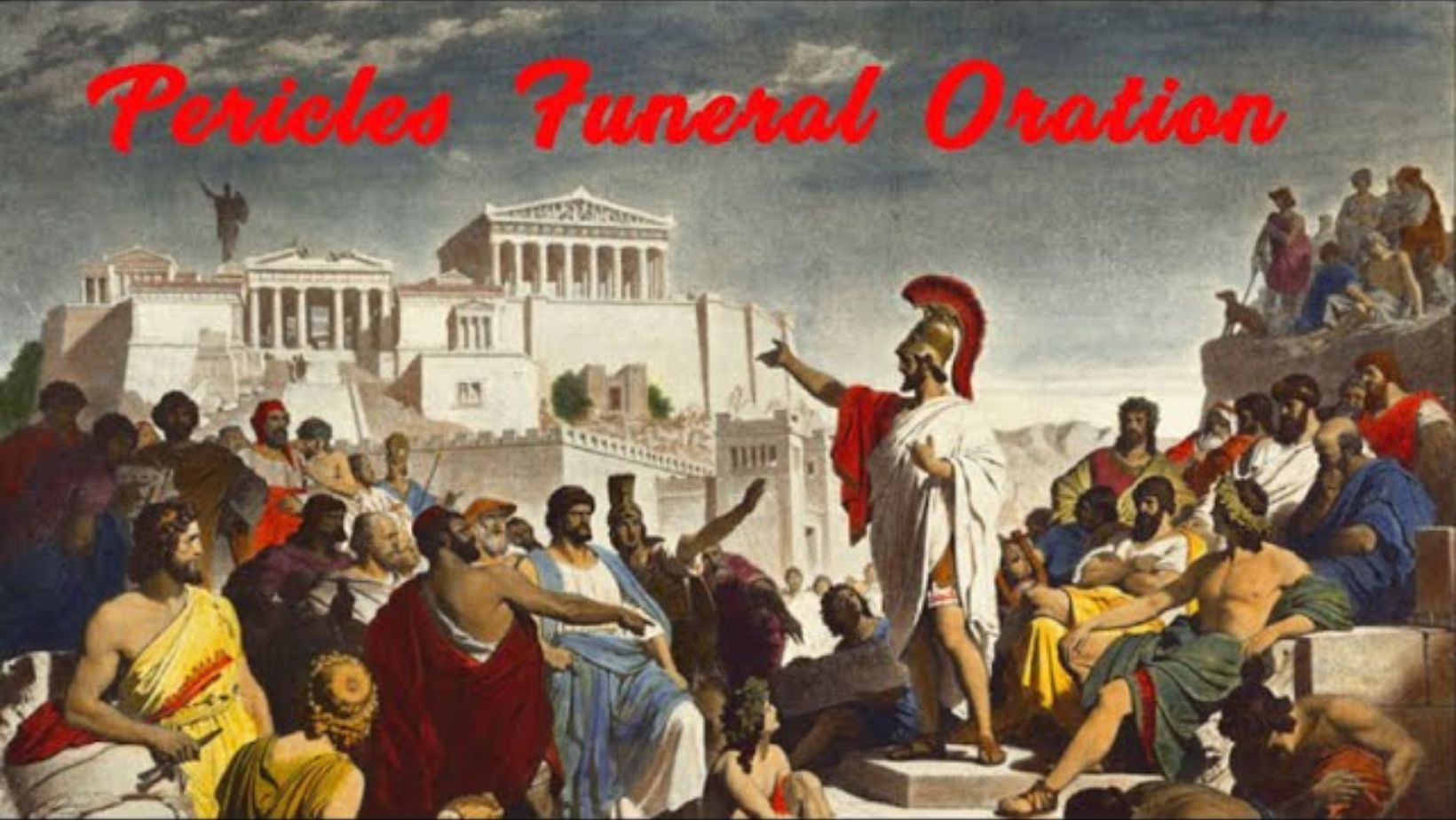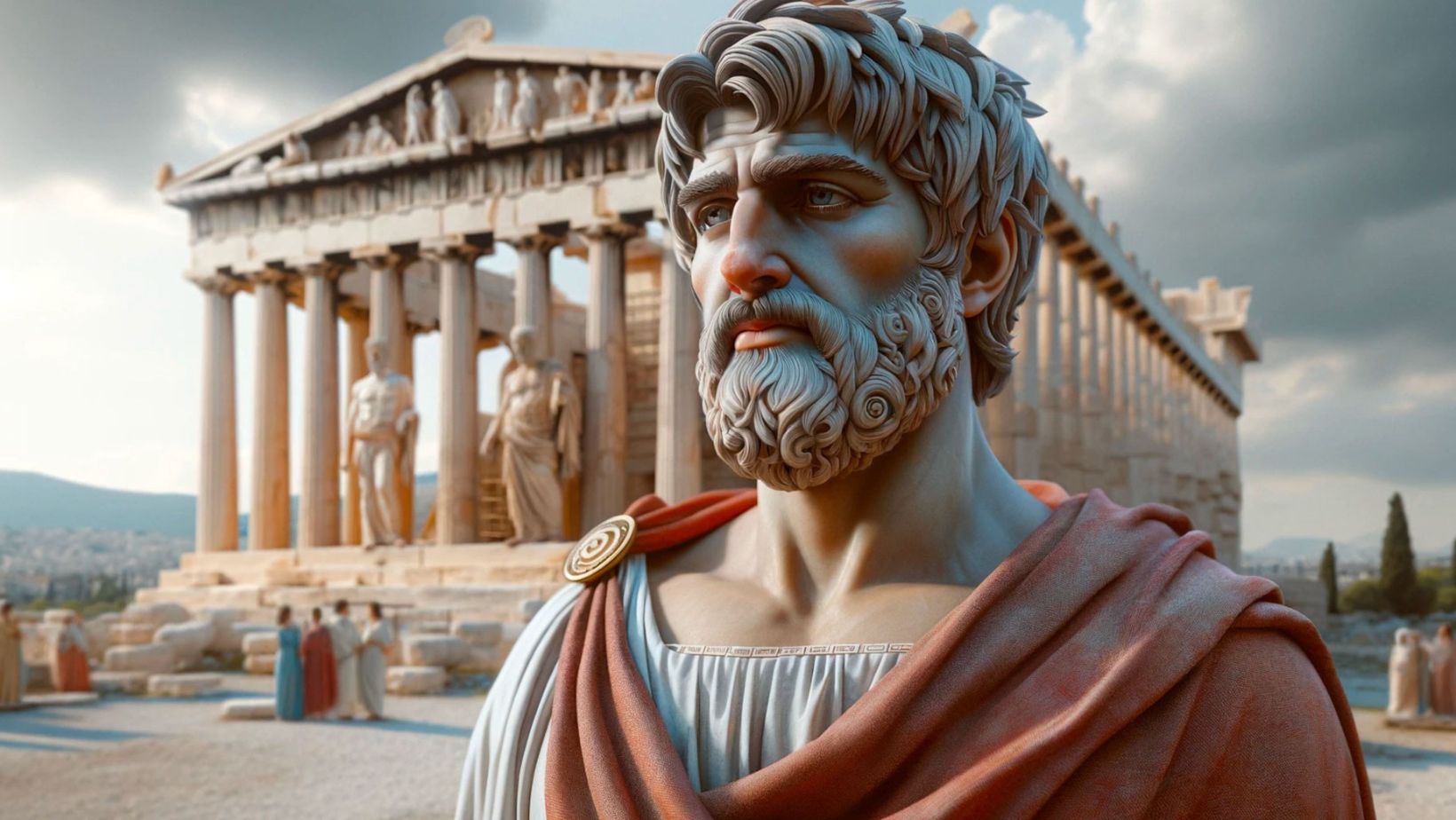When it comes to legendary speeches, few have echoed through time like the Pericles Funeral Oration. Set against the backdrop of ancient Athens at its zenith, this oration isn’t just a eulogy for fallen heroes; it’s a cornerstone of democratic ideals. With an ROI in cultural influence that’s off the charts since 431 BC, understanding its nuances offers more than historical insight—it reveals lessons on leadership and civic duty that remain relevant today.
So, you might wonder, with so many great talks out there, why does this one grab our attention? So, how exactly is this shaping the way we see and run our governments and public services today? Let’s peel back the layers.
Table of Contents:
- Overview of Pericles’ Funeral Oration
- Pericles’ Rise to Power and the Athenian Golden Age
- Key Themes in Pericles’ Funeral Oration
- Pericles’ Vision of Athenian Society
- The Legacy of Pericles’ Funeral Oration
- Conclusion
Overview of Pericles Funeral Oration

Pericles’ Funeral Oration is a legendary speech given by the Athenian leader Pericles after the first battles of the Peloponnesian War.
The Athenian historian Thucydides recorded Pericles’ words. The speech was part of the annual public funeral for the war dead.
Historical Context: Pericles Funeral Oration
Pericles’ Funeral Oration of 431 BC, as presented by Thucydides in his History of the Peloponnesian War, is the earliest known example of the genre of epitaphios logos.
The Peloponnesian War, which lasted from 431 to 404 BC, was a conflict between the city-states of Athens and Sparta. This moment stood out as a major chapter in Greece’s story.
The burial of the war dead in the first year of the Peloponnesian War reflects the fifth-century dominance of the public co-memorial.
Pericles’ Funeral Oration aimed to inspire and unite the Athenians in the face of the ongoing war. It celebrated Athenian democracy, freedom, and way of life.
Thucydides’ Account
Just before the funeral oration begins, Thucydides explains the customs associated with this memorial celebration.
The dead were cremated on the battlefield and brought back to Athens to be interred in coffins representing each of the tribes. There was also a coffin for those missing in action.
For three days, friends and family made offerings to the fallen. On the third day, after a procession and official burial, one man chosen by the elected officials made a speech. In this case, it was Pericles.
Pericles’ Rise to Power and the Athenian Golden Age: Pericles Funeral Oration
Pericles was born into a prominent Athenian family around 495 BC. His father Xanthippus was a military leader, and his mother Agariste came from the powerful Alcmaeonid family.
Pericles wasn’t just any student; he took lessons in music, studied philosophy, and mastered the art of rhetoric with some of the best teachers around. He became known for his oratorical skills and political acumen.
Pericles entered politics in the 460s BC as the leader of the Democratic Party. He quickly gained popularity through his speeches and sponsorship of major public works projects.
By 460 BC, Pericles had become the most influential statesman in Athens. He would dominate Athenian politics for the next 30 years until he died in 429 BC.
Achievements During the Golden Age
Under Pericles’ leadership, Athens experienced a cultural and political golden age. Democracy flourished, the arts thrived, and Athens became the educational and cultural center of the Greek world.
Pericles initiated an ambitious building program that included the Parthenon and other monuments on the Acropolis. These projects were like grand displays, showing off Athens’s rich and powerful status.
Pericles’ Death: Pericles Funeral Oration
Pericles died of typhoid fever in 429 BC, during the early stages of the Peloponnesian War. His death hit Athens hard.
In his account of the plague that struck Athens, Thucydides lamented that the city had lost its “first citizen.” Pericles’ leadership was deeply missed as the war dragged on.
Key Themes in Pericles’ Funeral Oration: Pericles Funeral Oration
Pericles really hit it out of the park with his Funeral Oration, laying bare what it means to be Athenian in a way that resonates deeply. It celebrates Athens’ unique character and achievements and connects them to the sacrifices of the war dead.
The speech is rich in themes that would shape Western political thought for centuries. Let’s dive in and take a closer look at some of the big concepts we’re discussing.
Pericles praises Athenian democracy as a system of government where power is in the hands of the many, not the few. He notes that all citizens, regardless of class, can participate in public affairs.
“Our constitution does not copy the laws of neighboring states; we are rather a pattern to others than imitators ourselves,” Pericles declares. Athens is a model for others to follow.
Athenian Way of Life: Pericles Funeral Oration
Pericles extols the Athenian way of life, which values freedom, tolerance, and the pursuit of excellence. Athenians cultivate the mind without losing manliness and appreciate beauty without extravagance.
“The freedom which we enjoy in our government extends also to our ordinary life,” Pericles states. Athenians are not suspicious of each other or angry at their neighbor’s choices.
Courage and Sacrifice
Pericles gives a big shoutout to the bravery and ultimate sacrifices made by fallen soldiers. Their deaths were not in vain; they died defending their city and way of life.
“Thus choosing to die resisting, rather than to live submitting, they fled only from dishonor but met danger face to face,” Pericles says of the war dead. Their sacrifice has earned them eternal glory.
Pericles’ Vision of Athenian Society: Pericles Funeral Oration

Pericles envisions an open, democratic, and egalitarian society in which merit, not class or wealth, determines success. Let’s examine some of the key aspects of his vision.
Pericles emphasizes that in Athens, advancement depends on ability, not social class. Public service is open to all, and poverty is no bar to office.
“When a citizen is in any way distinguished, he is preferred to the public service, not as a matter of privilege, but as the reward of merit,” Pericles states. What counts is ability, not wealth or rank.
Openness and Tolerance: Pericles Funeral Oration
Pericles describes Athens as an open and tolerant society. The city does not expel foreigners or deny them knowledge, in contrast to the closed nature of Sparta.
“We throw open our city to the world, and never by alien acts exclude foreigners from any opportunity of learning or observing,” Pericles declares. Athens is a cosmopolitan city that welcomes outsiders.
Pursuit of Excellence
Pericles praises the Athenian pursuit of excellence in all domains of life. In Athens, people have a knack for sharpening their minds and basking in the beauty around them while keeping both feet firmly planted on practical ground.
“We cultivate refinement without extravagance and knowledge without effeminacy; wealth we employ more for use than for show,” Pericles asserts. The Athenian character combines the best of intellectual and practical virtues.
The Legacy of Pericles’ Funeral Oration: Pericles Funeral Oration
For ages, the words spoken by Pericles at that famous funeral have left a deep mark on how we in the West think and express our cultural values. Over the years, its core messages and principles have struck a chord far and wide, lighting up the imaginations of leaders, creative minds, and artists alike.
The speech is a classic of political oratory, studied and admired for its rhetorical techniques and powerful language. Yet, what makes it stand out isn’t just the way it’s written.
Pericles’ Funeral Oration is a seminal text in the history of Western political thought. Its praise of democracy, equality, freedom, and the pursuit of excellence has influenced political thinkers from antiquity.
The speech’s vision of an open, meritocratic society has been an enduring ideal, even if it has not always been realized in practice. Its celebration of active citizenship and public service remains relevant today.
Enduring Relevance
The themes and values expressed in Pericles’ speech continue to resonate in the modern world. Its defense of democracy, its emphasis on civic engagement, and its celebration of diversity and openness are ideals that many societies still aspire to.
The speech honoring those who died defending their way of life also strikes a chord. It reminds us of the sacrifices that are sometimes necessary to preserve freedom and democracy.
Modern Interpretations and Adaptations: Pericles Funeral Oration
Pericles’ Funeral Oration has been widely studied, translated, and adapted in modern times. It has inspired countless speeches, essays, and works of art.
For example, Abraham Lincoln’s Gettysburg Address echoes the structure and themes of Pericles’ speech. Both honor the war dead and reaffirm the democratic ideals for which they fought.
In tough times or when we face big problems, this speech serves as a powerful reminder of what’s really important—our values and the way we live our lives. Its words offer comfort, inspiration, and a call to action.
Key Takeaway: Pericles Funeral Oration
Pericles’ Funeral Oration, a cornerstone of Western political thought, showcases the power of democracy and civic duty. It paints Athens as a beacon of freedom, meritocracy, and excellence. This timeless speech honors fallen heroes and sets forth ideals that continue to inspire global values today.
Conclusion: Pericles Funeral Oration
In wrapping up our journey through the dense fog of history to revisit Pericles Funeral Oration, we’ve sifted through myths versus reality about AI—not as world dominators but as silent enhancers of daily life—and uncovered truths about inbound marketing strategies that defy conventional wisdom yet deliver freedom and sustainability.
This exploration has revealed not only Pericles’ profound insights into democracy, courage, and sacrifice but also how these centuries-old principles can inform current practices—be they in crafting policy or penning emails with clarity and conviction. It reminds us that sometimes, looking back is the best way forward; extracting valuable lessons from antiquity enriches personal growth and propels professional endeavors toward genuine engagement rather than mere transactional interactions.
The legacy left behind by Athens’ foremost statesman challenges us even now: to think deeper about our roles within communities large or small, to serve rather than scare, and to build lasting foundations over fleeting gains.
In essence, whether wielding words or weaving web strategies—the call remains unchanged—strive for excellence,
commitment,
and authenticity.
This, this is sustainable success.

